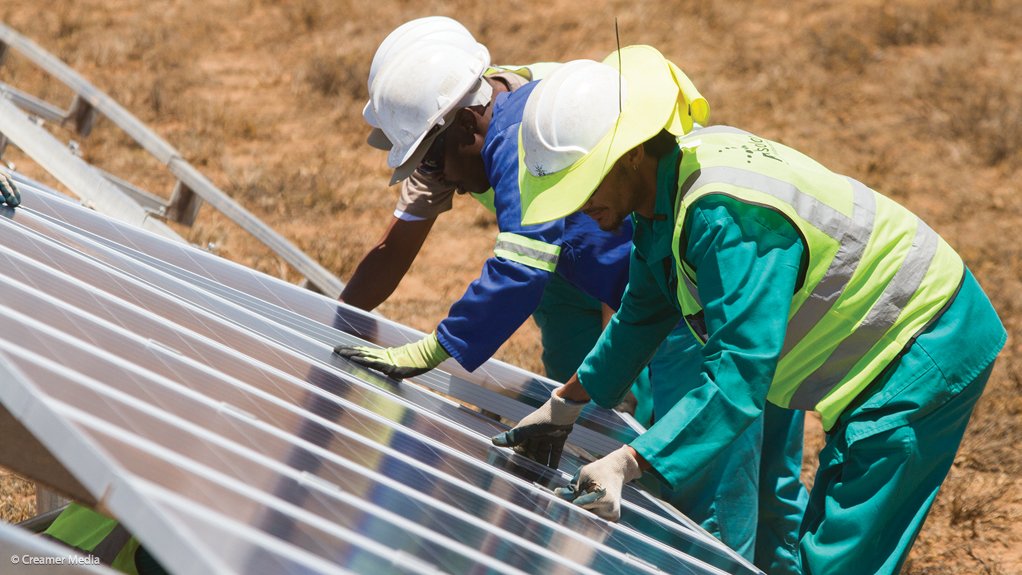The Presidency is exploring several avenues for increasing the grant component in the financing of South Africa’s Just Energy Transition Investment Plan (JET-IP), following broad-based stakeholder criticism about the limited nature of such funding in the initial $8.5-billion pledge made by various developed countries.
The head of the Presidency’s JET-IP project management unit (PMU), Joanne Yawitch, reports that discussions are under way with multilateral funding institutions, philanthropic organisations and developed economy governments about additional grant allocations for JET-IP projects and that the details are currently being finalised.
South Africa unveiled the contents of the JET-IP late last year and indicated that the $8.5-billion Just Energy Transition Partnership concluded with the European Union, France, Germany, the UK and the US in 2021 was viewed as providing only catalytic funding for a far larger $99-billion, or R1.5-trillion, five-year investment programme.
The electricity component of the plan envisages investment of R648-billion over the period for generation, storage and network infrastructure, with the balance required to support the emergence of new energy vehicle manufacturing (R128-billion) and the development of a green-hydrogen industry (R319-billion).
“One of the big criticisms from across the board was around the level of grants in the package.
“So, we have worked in the first half of this year with quite a wide range of philanthropies, countries and multilateral agencies to try and up the level of grants in the package … [and] I think that we starting to get somewhere in relation to the grant package,” Yawitch said during a Presidential Climate Commission (PPC) consultation on the creation of a just transition financing mechanism.
The grant funding would be required for the so-called ‘just’ investments associated with South Africa’s energy transition, particularly projects that could not be implemented on the basis of concessional loans and where fiscal injections would also be insufficient.
Yawitch made particular reference to skills development, municipal upliftment and small business development initiatives that had been included in the JET-IP, but which were described by civil society stakeholders as inadequate when they were consulted on the plan earlier in the year.
The PMU planned to address these deficiencies in an implementation plan, which is scheduled to be presented to Cabinet for approval in October following a series of “subject-related” consultation workshops.
She said the implementation plan would provide a “detailed investment roadmap” for the deployment of the funding but stressed that ongoing refinements would be required.
The PMU was also currently giving attention to the funding mechanisms for repowering and repurposing initiatives at Eskom’s retiring coal power stations. This, in light of the fact that the National Treasury had placed a moratorium on the utility raising any new debt as one of several conditions linked to a R254-billion debt-relief plan.
The initial JET-IP assumed that Eskom would be able to take up concessional loans for the repowering and repurposing of the stations, but the moratorium meant that alternatives now had to be explored.
This was taking place in parallel with an assessment of the condition of the coal fleet and whether the decommissioning schedule should be delayed in light of South Africa’s acute electricity supply shortfall.
In the meantime, the PCC was intensifying its own consultations on a so-called just transition financing mechanism and had published an initial consultation paper on a proposed approach for matching just transition funders with suitable projects.
The paper suggests that the Development Bank of Southern Africa be appointed to manage the mechanism but a final recommendation to government in this regard is yet to be made.
EMAIL THIS ARTICLE SAVE THIS ARTICLE ARTICLE ENQUIRY
To subscribe email subscriptions@creamermedia.co.za or click here
To advertise email advertising@creamermedia.co.za or click here











